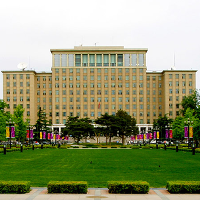10 October 2014
Benefits of Systems Analysis for Policy Support: Public lecture
Lecture abstract: Narrowly focused, single-disciplinary science alone cannot adequately underpin policies and solutions to resolve major sustainability challenges. We must rapidly refocus intellectual and economic investments toward multi-scale, integrated, interdisciplinary approaches that consider social, economic, and environmental aspects, that look across and between borders and sectors, and that identify feedbacks or the co - benefits of a policy or management decision, before it is made.
One example of this “systems” approach is the Global Energy Assessment (GEA), a multiyear, multidisciplinary study (coordinated by IIASA). The GEA links energy to climate, air quality, human health and mortality, economic growth, urbanization, water, land use, and other factors. The GEA scenarios find that energy access for all (by 2050) is possible with co - benefits of limiting warming to 2°C, improving air quality and human health, and stimulating economic growth within a green economy framework.
Realizing the sustainability goals will require investment in integrated analyses to fully understand the Earth system (human and natural). This must be enabled by substantial growth in public-private partnerships that stimulate and fund collaboration between social and natural scientists and that engage key stakeholders and the user community at all stages of the research cycle—from inception to implementation.


